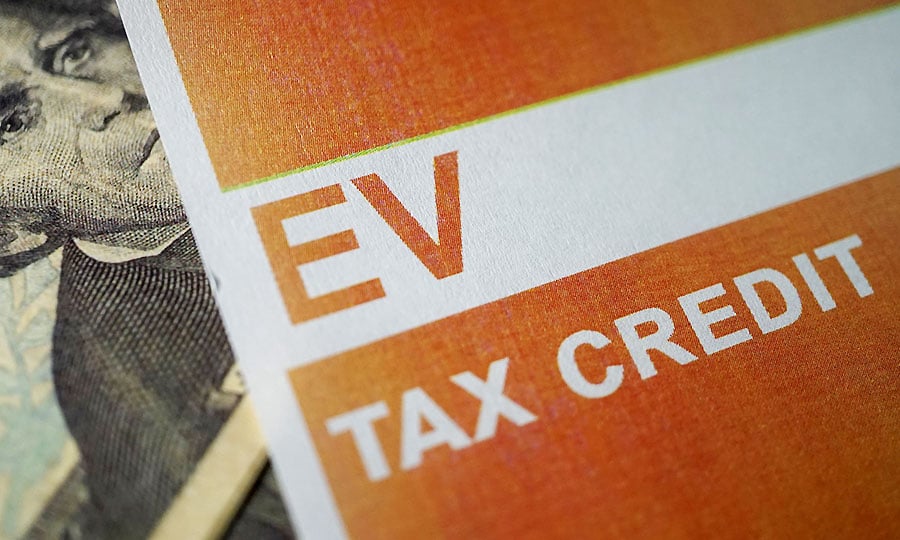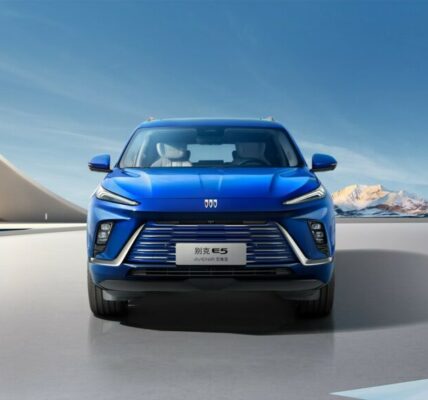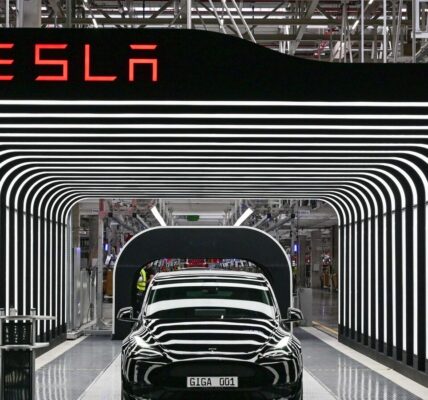The U.S. government has reimbursed auto dealers for about $135 million in advance point-of-sale consumer electric vehicle tax credit payments since the start of the year through Feb. 6, the Treasury said on Wednesday.
Prior to 2024, U.S. auto buyers could only take advantage of the $7,500 new electric vehicle credit or $4,000 used EV credit when they filed tax returns the following year.
Starting Jan. 1, consumers can transfer the credits to a car dealer at the time of sale, effectively lowering the vehicle’s purchase price.
The Internal Revenue Service has received more than 25,000 time of sale reports, including more than 19,500 – or 78% – with advance payment requests and approximately $135 million has been paid to dealers since Jan. 1, Treasury said in disclosing the previously unreported figures.
“One month into implementation of this provision, there is strong demand for this new upfront discount, which will continue momentum in growing this industry in the United States,” Deputy Treasury Secretary Wally Adeyemo said in a statement.
The advance payment requests include 17,500 for new EVs and 2,000 for used vehicles. More than 11,000 U.S. auto dealers have registered for the program, including more than 8,000 registered for advanced payments.
In January, many EVs lost eligibility for tax credits after new battery sourcing rules took effect, including the Nissan Leaf (7201.T), opens new tab, some Tesla Model 3s (TSLA.O), opens new tab, Chevrolet Blazer EV (GM.N), opens new tab, Cadillac Lyriq, Ford (F.N), opens new tab Mach-E and Ford E-Transit.
The Treasury issued guidelines in December aimed at weaning the U.S. electric vehicle supply chain away from China. The number of EV models qualifying for U.S. EV tax credits fell on Jan. 1 to 19 from 43, but since then Volkswagen (VOWG_p.DE), opens new tab regained eligibility for versions of its ID.4 EV.
Consumers must attest they meet income limits to qualify for the tax credit at time of purchase or they will need to repay the government when filing their taxes. For new vehicles, the adjusted gross income limit is $300,000 for married couples and $150,000 for individuals.
The August 2022 Inflation Reduction Act law reformed the EV tax credit, requiring vehicles to be assembled in North America to qualify for any tax credits, eliminating nearly 70% of eligible models.
It also created a used EV tax credit, lifted 200,000-vehicle manufacturer caps on credits, imposed income and vehicle price restrictions and extended credits to leased vehicles.








